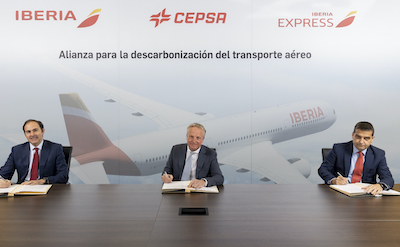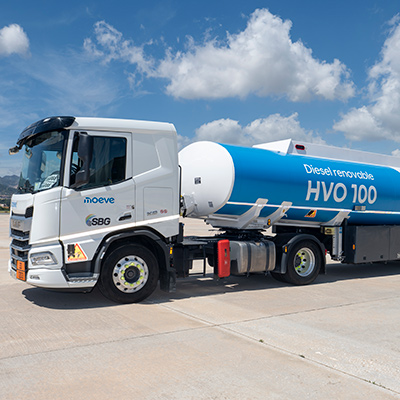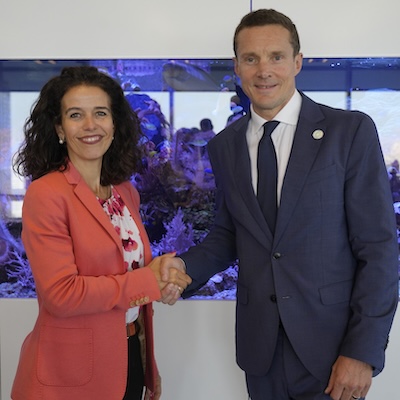- The two major Spanish companies are joining forces to develop and produce sustainable aviation biofuels (SAF) on a large scale from waste, recycled used oils, and other sustainable plant-based feedstocks (2nd generation bios)
- The agreement, which also includes Iberia Express, contemplates other alternative energy sources such as renewable hydrogen and electricity to promote sustainable mobility in aircraft and ground fleets (vehicles for supply, baggage loading and unloading, aircraft assistance, and runway towing)
- Cepsa, one of Spain's market leaders in aviation fuel supply, becomes a strategic supplier to Iberia. With this agreement, the airline secures preferential access to a scarce fuel (biojet) and a competitive advantage for both customers and investors (thanks to better ratings on sustainability indexes)
- The Iberia Group bases its sustainability strategy on three pillars: more efficient operations, a more sustainable travel experience for its customers, and a commitment to research and development of sustainable fuels and other technologies that will contribute to the decarbonization of the aviation industry
The Chairmen of Iberia and Iberia Express and the CEO of Cepsa today signed an agreement to help decarbonize the airline industry through R&D into sustainable fuels and other alternative energies such as renewable hydrogen and electricity with the aim of promoting sustainable mobility for aircraft and the fleet of airport ground vehicles.
For all three companies, the development of sustainably sourced aviation fuels (SAF) is a priority for moving towards an increasingly low-carbon industry and contributing to the achievement of the 2030 Agenda. This project, which includes SAF research and flight testing, contributes to Sustainable Development Goals 7 (Ensure access to affordable, reliable and modern energy services), 8 (Promote inclusive and sustained economic growth, employment and decent jobs) and 13 (Take urgent action to combat climate change and its impacts).
Cepsa is working on an ambitious plan to green all its businesses and become an industry leader in the energy transition. In addition, the company has extensive experience in this field: it has been producing biofuels in its refineries for more than 10 years and is developing pioneering studies worldwide to convert waste and used oils into fuels from renewable sources with a high energy value.





